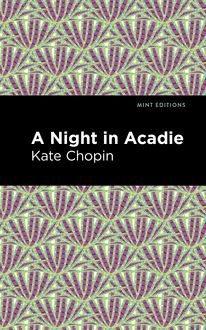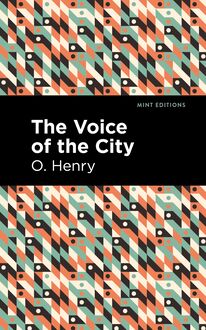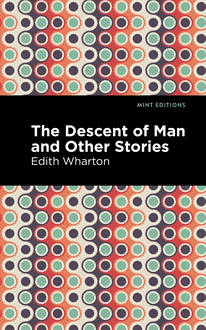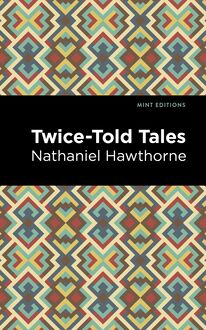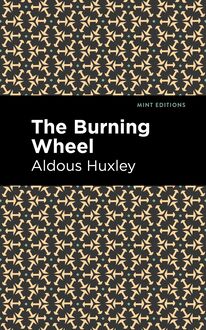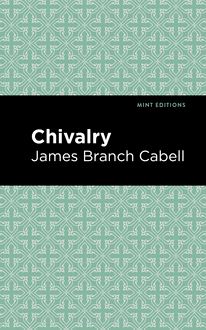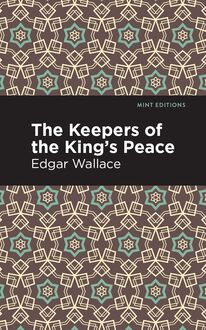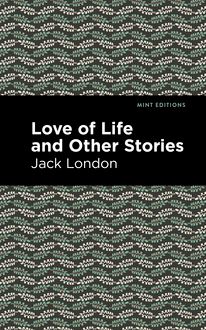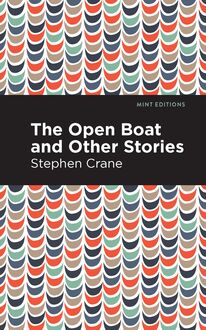-
 Univers
Univers
-
 Ebooks
Ebooks
-
 Livres audio
Livres audio
-
 Presse
Presse
-
 Podcasts
Podcasts
-
 BD
BD
-
 Documents
Documents
-
- Cours
- Révisions
- Ressources pédagogiques
- Sciences de l’éducation
- Manuels scolaires
- Langues
- Travaux de classe
- Annales de BEP
- Etudes supérieures
- Maternelle et primaire
- Fiches de lecture
- Orientation scolaire
- Méthodologie
- Corrigés de devoir
- Annales d’examens et concours
- Annales du bac
- Annales du brevet
- Rapports de stage
La lecture à portée de main
Vous pourrez modifier la taille du texte de cet ouvrage
Découvre YouScribe en t'inscrivant gratuitement
Je m'inscrisDécouvre YouScribe en t'inscrivant gratuitement
Je m'inscrisEn savoir plus
Vous pourrez modifier la taille du texte de cet ouvrage
En savoir plus

Description
Falling in Love (1889) is a brilliant collection of essays by innovative Canadian writer Grant Allen. His wide-ranging interests and unique, personal tone present science in a style that not only makes difficult concepts digestible to the average reader, but also presages the popularity of New Journalism in the latter half of the twentieth century.
In the title essay, Allen moves from analysis of the evolutionary implications of love to a blistering critique of the institution of marriage. Central to this piece is a rejection of matchmaking according to religion, race, and rank, which Allen makes with the hope that “marriage for love…will last for ever.”
Allen was a writer unafraid of ruffling feathers, a tireless individual who delighted in dissecting and ejecting convention. In “British and Foreign,” Allen looks at the non-indigenous nature of so much of Britain’s environment to argue that, in the end, “there is nothing really and truly British.” Allen was also, perhaps more than anything else, a deeply curious man, a person for whom no topic was unworthy of questioning. In “Honey-Dew,” as though under a microscope, he examines the remarkable coexistence between ants and aphids to not only highlight the intricate webs that make up the natural world, but to expose humanity’s outsized, and often helpless, role in the life of the planet. Other essays in Falling in Love find Allen espousing on the nonexistence of thunderbolts, composing a treatise on the sociopolitical history of the banana, and saying what he would have said on an archaeological expedition (had he been asked). For Allen, humor is never too far from insight, and insight is always within reach.
Falling in Love is both a pleasure to read and intoxicating, a work for readers intrigued by science or looking for a fresh voice to cut through the world’s confusion. Grant Allen was not just a novelist and essayist, but a writer’s writer whose words read as clearly as though they were written yesterday.
With a beautifully designed cover and professionally typeset manuscript, this new edition of Grant Allen’s Falling in Love is an understated classic of literary nonfiction reimagined for modern readers.
Sujets
Informations
| Publié par | Mint Editions |
| Date de parution | 01 décembre 2020 |
| Nombre de lectures | 0 |
| EAN13 | 9781513266978 |
| Langue | English |
| Poids de l'ouvrage | 3 Mo |
Informations légales : prix de location à la page 0,0500€. Cette information est donnée uniquement à titre indicatif conformément à la législation en vigueur.
Extrait
Falling in Love
Grant Allen
Falling in Love was first published in 1889.
This edition published by Mint Editions 2020.
ISBN 9781513266534 | E-ISBN 9781513266978
Published by Mint Editions®
minteditionbooks.com
Publishing Director: Jennifer Newens
Project Manager: Gabrielle Maudiere
Design & Production: Rachel Lopez Metzger
Typesetting: Westchester Publishing Services
C ONTENTS
F ALLING IN L OVE
R IGHT AND L EFT
E VOLUTION
S TRICTLY I NCOG .
S EVEN -Y EAR S LEEPERS
A F OSSIL C ONTINENT
A V ERY O LD M ASTER
B RITISH AND F OREIGN
T HUNDERBOLTS
H ONEY -D EW
T HE M ILK IN THE C OCONUT
F OOD AND F EEDING
D E B ANANA
G O TO THE A NT
B IG A NIMALS
F OSSIL F OOD
O GBURY B ARROWS
F ISH O UT OF W ATER
T HE F IRST P OTTER
T HE R ECIPE FOR G ENIUS
D ESERT S ANDS
F ALLING IN L OVE
A n ancient and famous human institution is in pressing danger. Sir George Campbell has set his face against the time-honoured practice of Falling in Love. Parents innumerable, it is true, have set their faces against it already from immemorial antiquity; but then they only attacked the particular instance, without venturing to impugn the institution itself on general principles. An old Indian administrator, however, goes to work in all things on a different pattern. He would always like to regulate human life generally as a department of the India Office; and so Sir George Campbell would fain have husbands and wives selected for one another (perhaps on Dr. Johnson’s principle, by the Lord Chancellor) with a view to the future development of the race, in the process which he not very felicitously or elegantly describes as “man-breeding.” “Probably,” he says, as reported in Nature , “we have enough physiological knowledge to effect a vast improvement in the pairing of individuals of the same or allied races if we could only apply that knowledge to make fitting marriages, instead of giving way to foolish ideas about love and the tastes of young people, whom we can hardly trust to choose their own bonnets, much less to choose in a graver matter in which they are most likely to be influenced by frivolous prejudices.” He wants us, in other words, to discard the deep-seated inner physiological promptings of inherited instinct, and to substitute for them some calm and dispassionate but artificial selection of a fitting partner as the father or mother of future generations.
Now this is of course a serious subject, and it ought to be treated seriously and reverently. But, it seems to me, Sir George Campbell’s conclusion is exactly the opposite one from the conclusion now being forced upon men of science by a study of the biological and psychological elements in this very complex problem of heredity. So far from considering love as a “foolish idea,” opposed to the best interests of the race, I believe most competent physiologists and psychologists, especially those of the modern evolutionary school, would regard it rather as an essentially beneficent and conservative instinct developed and maintained in us by natural causes, for the very purpose of insuring just those precise advantages and improvements which Sir George Campbell thinks he could himself effect by a conscious and deliberate process of selection. More than that, I believe, for my own part (and I feel sure most evolutionists would cordially agree with me), that this beneficent inherited instinct of Falling in Love effects the object it has in view far more admirably, subtly, and satisfactorily, on the average of instances, than any clumsy human selective substitute could possibly effect it.
In short, my doctrine is simply the old-fashioned and confiding belief that marriages are made in heaven: with the further corollary that heaven manages them, one time with another, a great deal better than Sir George Campbell.
Let us first look how Falling in Love affects the standard of human efficiency; and then let us consider what would be the probable result of any definite conscious attempt to substitute for it some more deliberate external agency.
Falling in Love, as modern biology teaches us to believe, is nothing more than the latest, highest, and most involved exemplification, in the human race, of that almost universal selective process which Mr. Darwin has enabled us to recognise throughout the whole long series of the animal kingdom. The butterfly that circles and eddies in his a ë rial dance around his observant mate is endeavouring to charm her by the delicacy of his colouring, and to overcome her coyness by the display of his skill. The peacock that struts about in imperial pride under the eyes of his attentive hens, is really contributing to the future beauty and strength of his race by collecting to himself a harem through whom he hands down to posterity the valuable qualities which have gained the admiration of his mates in his own person. Mr. Wallace has shown that to be beautiful is to be efficient; and sexual selection is thus, as it were, a mere lateral form of natural selection—a survival of the fittest in the guise of mutual attractiveness and mutual adaptability, producing on the average a maximum of the best properties of the race in the resulting offspring. I need not dwell here upon this aspect of the case, because it is one with which, since the publication of the “Descent of Man,” all the world has been sufficiently familiar.
In our own species, the selective process is marked by all the features common to selection throughout the whole animal kingdom; but it is also, as might be expected, far more specialised, far more individualised, far more cognisant of personal traits and minor peculiarities. It is furthermore exerted to a far greater extent upon mental and moral as well as physical peculiarities in the individual.
We cannot fall in love with everybody alike. Some of us fall in love with one person, some with another. This instinctive and deep-seated differential feeling we may regard as the outcome of complementary features, mental, moral, or physical, in the two persons concerned; and experience shows us that, in nine cases out of ten, it is a reciprocal affection, that is to say, in other words, an affection roused in unison by varying qualities in the respective individuals.
Of its eminently conservative and even upward tendency very little doubt can be reasonably entertained. We do fall in love, taking us in the lump, with the young, the beautiful, the strong, and the healthy; we do not fall in love, taking us in the lump, with the aged, the ugly, the feeble, and the sickly. The prohibition of the Church is scarcely needed to prevent a man from marrying his grandmother. Moralists have always borne a special grudge to pretty faces; but, as Mr. Herbert Spencer admirably put it (long before the appearance of Darwin’s selective theory), “the saying that beauty is but skin-deep is itself but a skin-deep saying.” In reality, beauty is one of the very best guides we can possibly have to the desirability, so far as race-preservation is concerned, of any man or any woman as a partner in marriage. A fine form, a good figure, a beautiful bust, a round arm and neck, a fresh complexion, a lovely face, are all outward and visible signs of the physical qualities that on the whole conspire to make up a healthy and vigorous wife and mother; they imply soundness, fertility, a good circulation, a good digestion. Conversely, sallowness and paleness are roughly indicative of dyspepsia and an æ mia; a flat chest is a symptom of deficient maternity; and what we call a bad figure is really, in one way or another, an unhealthy departure from the central norma and standard of the race. Good teeth mean good deglutition; a clear eye means an active liver; scrubbiness and undersizedness mean feeble virility. Nor are indications of mental and moral efficiency by any means wanting as recognised elements in personal beauty. A good-humoured face is in itself almost pretty. A pleasant smile half redeems unattractive features. Low, receding foreheads strike us unfavourably. Heavy, stolid, half-idiotic countenances can never be beautiful, however regular their lines and contours. Intelligence and goodness are almost as necessary as health and vigour in order to make up our perfect ideal of a beautiful human face and figure. The Apollo Belvedere is no fool; the murderers in the Chamber of Horrors at Madame Tussaud’s are for the most part no beauties.
What we all fall in love with, then, as a race, is in most cases efficiency and ability. What we each fall in love with individually is, I believe, our moral, mental, and physical complement. Not our like, not our counterpart; quite the contrary; within healthy limits, our unlike and our opposite. That this is so has long been more or less a commonplace of ordinary conversation; that it is scientifically true, one time with another, when we take an extended range of cases, may, I think, be almost demonstrated by sure and certain warranty of human nature.
Brothers and sisters have more in common, mentally and physically, than any other members of the same race can possibly have with one another. But nobody falls in love with his sister. A profound instinct has taught even the lower races of men (for the most part) to avoid such union of the all-but-identical. In the higher races the idea never so much as occurs to us. Even cousins seldom fall in love—seldom, that is to say, in comparison with the frequent opportunities of intercourse they enjoy, relatively to the remainder of general society. When they do, and when they carry out their perilous choice effectively by marriage, natural selection soon avenges Nature upon the offspring by cutting off the idiots, the consumptives, the weaklings, and the cripples, who often result from such consanguineous marriages. In narrow communities, where breeding in-and-in becomes almost inevitable, natural selection has similarly to ex
-
 Univers
Univers
-
 Ebooks
Ebooks
-
 Livres audio
Livres audio
-
 Presse
Presse
-
 Podcasts
Podcasts
-
 BD
BD
-
 Documents
Documents
-
Jeunesse
-
Littérature
-
Ressources professionnelles
-
Santé et bien-être
-
Savoirs
-
Education
-
Loisirs et hobbies
-
Art, musique et cinéma
-
Actualité et débat de société
-
Jeunesse
-
Littérature
-
Ressources professionnelles
-
Santé et bien-être
-
Savoirs
-
Education
-
Loisirs et hobbies
-
Art, musique et cinéma
-
Actualité et débat de société
-
Actualités
-
Lifestyle
-
Presse jeunesse
-
Presse professionnelle
-
Pratique
-
Presse sportive
-
Presse internationale
-
Culture & Médias
-
Action et Aventures
-
Science-fiction et Fantasy
-
Société
-
Jeunesse
-
Littérature
-
Ressources professionnelles
-
Santé et bien-être
-
Savoirs
-
Education
-
Loisirs et hobbies
-
Art, musique et cinéma
-
Actualité et débat de société
- Cours
- Révisions
- Ressources pédagogiques
- Sciences de l’éducation
- Manuels scolaires
- Langues
- Travaux de classe
- Annales de BEP
- Etudes supérieures
- Maternelle et primaire
- Fiches de lecture
- Orientation scolaire
- Méthodologie
- Corrigés de devoir
- Annales d’examens et concours
- Annales du bac
- Annales du brevet
- Rapports de stage
